As the One Big Beautiful Bill Act (OBBBA) advances through the legislative process, investors are growing increasingly concerned about its proposed changes to capital gains and investment income taxation. These modifications represent the most significant overhaul to investment taxation in decades and could fundamentally alter investment strategies across portfolios of all sizes. In this installment of our OBBBA series, we’ll provide a comprehensive analysis of these changes and offer actionable insights to help you prepare.
The Current Landscape vs. OBBBA Proposals
Before diving into the specific changes, it’s worth understanding the current preferential treatment of investment income. For decades, long-term capital gains and qualified dividends have enjoyed lower tax rates than ordinary income, currently topping out at 20% (plus the 3.8% Net Investment Income Tax for high earners) compared to 37% for ordinary income. This differential has shaped investment decisions for generations of Americans and influenced everything from portfolio construction to retirement planning.
The OBBBA proposes to narrow or eliminate this gap for certain taxpayers, representing a fundamental shift in investment taxation philosophy.
Proposed Changes to Capital Gains Taxation
Increased Capital Gains Rates
The most headline-grabbing change is the proposed increase in long-term capital gains rates:
- For those earning over $1 million: Long-term capital gains would be taxed at the top ordinary income rate of 39.6% nearly double the current 20% rate
- Additional surcharges: When combined with the expanded 3.8% Net Investment Income Tax and new high-income surcharges, effective rates could reach nearly 45% for the highest earners
- Retroactive implementation concerns: While typically tax changes are prospective, there is discussion about making certain capital gains provisions retroactive to the date of the bill’s introduction, creating urgency for planning
For perspective, an investor in the highest bracket selling $2 million in appreciated stock with a $1 million cost basis would pay approximately $200,000 in federal tax under current law, but potentially $450,000 under the OBBBA, a $250,000 difference.
Adjustments to Holding Period Requirements
The OBBBA proposes a tiered approach to capital gains taxation based on holding periods:
- Short-term remains under 1 year: Continuing to be taxed at ordinary income rates
- New mid-term category: Assets held 1-3 years would qualify for an intermediate rate structure
- Extended long-term requirement: Full preferential rates would only apply to assets held longer than 3 years
- Ultra-long-term incentives: Additional rate reductions for assets held 7+ years to encourage long-term investment
This tiered structure aims to discourage short-term trading and reward patient capital, but it also adds complexity to investment timing decisions.
Expansion of Net Investment Income Tax
The 3.8% Net Investment Income Tax (NIIT) would see significant expansion:
- Extended to active business income: S-corporation and partnership income for high-income owners would now be subject to NIIT, even if actively involved in the business
- Lower income thresholds: The income levels at which NIIT applies would decrease, capturing more taxpayers
- Application to trusts and estates: More rigorous application to trust and estate income, limiting a current planning strategy
These changes would affect not just traditional investors but also business owners who have historically treated their business interests differently from passive investments.
Impact on Specific Investment Income Types
Dividends Taxation Revolution
The OBBBA proposes substantial changes to dividend taxation:
- Elimination of qualified dividend rates: All dividends would potentially be taxed as ordinary income for taxpayers above certain income thresholds
- Pass-through entity dividends: Special provisions for dividends from pass-through entities with potential partial exclusions
- Foreign dividend withholding: Modified treatment of foreign dividends with potential for increased foreign tax credit complexity
This could shift investor preference away from dividend-paying stocks toward growth stocks for taxable accounts, with dividend-focused investments becoming more suitable for tax-advantaged accounts.
Interest Income Considerations
While already taxed at ordinary rates, interest income would see other changes:
- Municipal bond interest: Partial taxation of currently tax-exempt municipal bond interest for high-income taxpayers
- Enhanced reporting requirements: Financial institutions would face additional reporting requirements for interest income
- Inflation-indexed bonds: Modified treatment of inflation adjustments on Treasury Inflation-Protected Securities (TIPS)
Special Assets: Real Estate and Collectibles
The OBBBA includes targeted provisions for specialized asset classes:
- Real estate: Limitation of Section 1031 like-kind exchanges to $500,000 annually, dramatically affecting real estate investors
- Depreciation recapture: Higher rates on depreciation recapture, potentially reaching ordinary income rates
- Collectibles: Adjusted rates for collectibles gains, potentially aligning with new higher capital gains rates
Business Owner Considerations
Business owners face unique challenges under the OBBBA:
- Carried interest elimination: Complete elimination of carried interest provisions that allow fund managers to receive capital gains treatment
- Qualified Small Business Stock (QSBS): Reduction of the Section 1202 exclusion from 100% to 50% for high-income taxpayers
- Sale of business assets: New look-back provisions for business sales structured as asset sales
- Employee stock options: Modified taxation of stock options and restricted stock units at exercise
The combined effect of these changes could significantly impact succession planning, exit strategies, and equity compensation structures.
Strategic Planning for Investors
With these substantial changes looming, investors should consider several strategic approaches:
Portfolio Structure Optimization
- Asset location reassessment: Review which investments belong in taxable versus tax-advantaged accounts
- Tax-loss harvesting acceleration: Consider more aggressive tax-loss harvesting before rate increases
- Tax-efficient investment vehicles: Greater emphasis on ETFs and other tax-efficient structures
- Direct indexing opportunities: Consider direct indexing strategies that allow for more targeted tax-loss harvesting
Timing Considerations
- Accelerating planned sales: For investors already considering selling appreciated assets, accelerating these transactions before rate increases may be beneficial
- Installment sale reconsideration: Evaluate whether installment sales remain advantageous under the new rate structure
- Charitable giving with appreciated assets: Donations of appreciated securities become even more tax-efficient under higher capital gains rates
Tax-Advantaged Account Maximization
- Retirement account contributions: Maximize contributions to IRAs, 401(k)s, and other tax-advantaged accounts
- Roth conversion analysis: Evaluate whether Roth conversions make sense before potential tax rate increases
- Health Savings Accounts: Utilize HSAs as triple-tax-advantaged investment vehicles
- 529 Plans: Consider expanded use of 529 plans for education expenses
Estate Planning Integration
- Lifetime gifting acceleration: Consider completing planned gifts before potential changes to estate tax exclusions
- Trust strategies: Evaluate charitable remainder trusts and other structures that can provide income while managing capital gains exposure
- Step-up in basis considerations: Factor in potential changes to step-up in basis rules when designing estate plans
Compliance and Reporting Changes
Beyond the rate changes, the OBBBA introduces enhanced compliance measures:
- Expanded broker reporting: Cryptocurrency and other digital asset transactions would require the same reporting as traditional securities
- Increased audit risk: Additional IRS funding targeted specifically at high-income investment activity audits
- New disclosure requirements: Enhanced disclosure of offshore investments and complex structures
Conclusion: Navigating the New Investment Tax Landscape
The OBBBA’s proposed changes to capital gains and investment income taxation represent a paradigm shift for investors. While higher rates create challenges, they also create planning opportunities for those who act strategically.
The key takeaway is that passive investment strategies that were tax-efficient under the old rules may need reconsideration. Proactive tax planning will become more valuable than ever, with the potential tax savings easily justifying professional guidance.
As we continue our series on the OBBBA, our next article will focus on compliance and reporting requirements that complete the picture of this comprehensive tax overhaul. Understanding all aspects of these changes will be essential for navigating the new tax landscape effectively.
For personalized guidance on optimizing your investment strategy in light of these proposed changes, contact Local Outsourced Accounting. Our team of investment and tax specialists can help you develop a tailored approach that minimizes tax impact while supporting your long-term financial goals.


